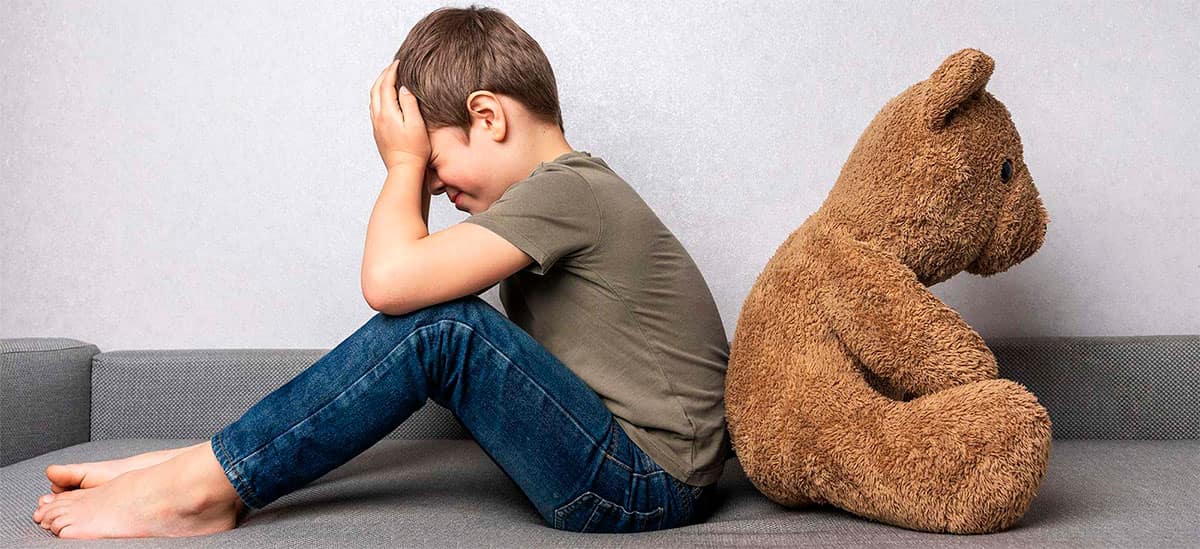Child Bipolar Disorder Treatment
Brooklyn, New york
Navigating the complexities of bipolar disorder in children can feel overwhelming for both the child and their family. At Interborough, we specialize in treating children with bipolar disorder, offering a path to balance and well-being. Our team of expert therapists employs a combination of evidence-based therapies tailored to each child’s unique needs and symptoms.
We focus on holistic care, addressing the emotional, behavioral, and cognitive aspects of bipolar disorder. Our goal is to empower your child with the tools and strategies they need to manage their condition, fostering emotional stability and a more fulfilling life. Trust us to provide the compassionate, specialized care your child deserves.
How Do I Know if My Child Has Bipolar Disorder?
Many children experience mood swings or “Ups” and “Downs” in life, but the shifts a child who is Bipolar exhibits, are much more powerful. The mood swings are more extreme and are accompanied by changes in sleep, energy level, and the ability to think clearly. Bipolar symptoms are so strong, they can make it hard for a child to do well in school or get along with friends and family members. The illness can also be dangerous. Some young people with Bipolar disorder try to hurt themselves or attempt suicide.
Symptoms of Bipolar Disorder
Symptoms are divided into two categories: mania and depression.
Mania which can last up to three months if untreated, may include symptoms such as elevated levels of energy, reduced need for rest, and severe loss of fully understanding reality.
Depression can include symptoms such as reduced energy, lower motivation than what the child is used to, and little interest in daily activities. Depression could come before or after a manic, hypomanic, or normal period of mood episodes can last days or months at a time and may also be associated with suicidal thoughts.
Bipolar disorder can be classified into: Bipolar I Disorder, Bipolar II Disorder, Cyclothymic Disorder, Rapid Cycling and Mixed Episode.
Bipolar I Disorder: Bipolar I Disorder is given when a child has at least one episode of mania. While a person with Bipolar I might only experience manic episodes, it often includes episodes of Depression and hypomania. Hypomania includes the same symptoms of mania but can be shorter in duration and less severe. They do not include symptoms of psychosis or require hospitalization.
Cyclothymic Disorder: Sometimes called Cyclothymia, this disorder includes episodes of hypomania and depressive symptoms that occur on a fairly regular basis. While changes in mood are not as extreme as those associated with Bipolar I and Bipolar II Disorders, it can still cause serious problems in a child’s life and may later progress to symptoms of mania, hypomania, and Depression.
Rapid Cycling: Rapid cycling is a term used when a child experiences four or more episodes of hypomania, mania, or Depression within a 12-month time period.
Mixed Episode: A mixed episode occurs when a child is experiencing symptoms of both Depression and mania or hypomania at the same time. Children with Bipolar disorders are at an increased risk for suicide, and this risk is thought to be especially high during mixed episodes.

WHY IDCC?
IDCC wants you to know that you and your child are not alone. We help your children do the things they enjoy by developing and teaching them to follow a treatment plan, dramatically reducing many of the symptoms of Bipolar Disorder.
Children with various mental health conditions can and do pursue higher education, succeed in their careers, make friends and have stable relationships. Clinicians are trained in destigmatizing the therapy process and to listen to children and their families, through which they are made aware of the cultures of the clients they treat.
This ensures that children and their families feel as comfortable with the therapy process as possible
My Child Has Bipolar Disorder, Now What?
Cognitive Behavioral Therapy (CBT) helps change the negative thinking and behavior associated with Depression. The goal of this therapy is to help your child recognize negative thoughts and to teach coping strategies.
Family-Focused Therapy helps children with Bipolar Disorder learn about the illness and carry out a treatment plan.
Psychotherapy focused on self-care and stress regulation, helps children improve their self-care, recognize patterns of the onset of the symptoms and manage stress.
Psychotherapy focused on self-care and stress regulation, helps children improve their self-care, recognize patterns of the onset of the symptoms and manage stress.
Discover More Ways to Support Your Child
In addition to Child Bipolar Disorder Treatment, we offer Child DMDD Therapy. Explore how we can help your child better manage their emotions.